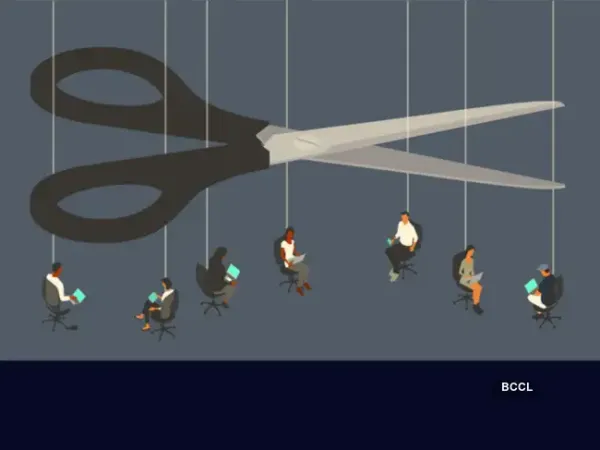Amazon recently announced to nearly 350,000 of its employees that they must either relocate to one of its main office hubs like Seattle, Arlington (Virginia), and Washington, D.C., or leave the company without receiving severance pay.
It is interesting to note how readily the company is willing to let go of employees simply to enforce a return to office-based work. However, this should not come as a surprise, given how Amazon CEO Andy Jassy has said time and again that AI adoption will reduce the company’s corporate workforce.
Like Amazon, many other major tech firms, including Meta, Microsoft, Google, and others, have also been affected by waves of layoffs, especially given the disruption brought about by artificial intelligence (AI).
The United Nations Conference on Trade and Development (UNCTAD), in April, warned that AI could impact up to 40% of jobs worldwide.
Also Read: Jobs AI won’t replace: Anthropic cofounder Jack Clark names safest roles
What CEOs say
Global tech leaders have been expressing concerns about this development.
In May, former Google CEO Eric Schmidt said professionals in many fields, including art and medicine, could become irrelevant if they do not adapt to AI. Around the same time, Nvidia CEO Jensen Huang said that every job is going to be affected by AI.
“You are not going to lose your job to AI, but you are going to lose your job to somebody who uses AI,” Huang said.
Last month, Anthropic CEO Dario Amodei openly warned that AI could eat away nearly half of all entry-level white collar jobs, and soon.
However, these are not just random claims but are backed by data. According to a report by McKinsey and Company, between 400 and 800 million jobs could be displaced worldwide within five years, depending on how quickly automation is adopted.
This shift could force around 375 million workers—14% of the global workforce—to transition into entirely new careers.
When it comes to India, the Economic Survey 2024-25 has raised similar concerns and called attention to the heightened worries of workers and the speed at which AI is transforming the labour market.
Hitesh Oberoi, CEO of Info Edge (which operates Naukri.com), recently said AI isn’t just about job cuts but changing the nature of work. He emphasised the need to focus on developing new skills.
Zoho founder Sridhar Vembu, however, gave a more radical view on this issue. He said on X, “The productivity revolution I see coming to software development (LLMs + tooling) could destroy a lot of software jobs. This is sobering but necessary to internalise.”
The other side
However, not all CEOs are eager to expand AI use.
Klarna Group, a fintech firm, has chosen to reduce its AI-powered customer service. CEO Sebastian Siemiatkowski explained that the model led to a drop in service quality, and the company is now adjusting its approach.
“Really investing in the quality of human support is the way of the future for us,” he said.
Many workers, too, have adopted a positive approach to AI integration in the workplace. A study by SnapLogic found that 81% of office workers believe AI enhances their job performance and overall work experience.
While there is a diverse range of opinions on this topic, it is clear that workers will have to adapt to the changes brought in by the AI revolution.
It is interesting to note how readily the company is willing to let go of employees simply to enforce a return to office-based work. However, this should not come as a surprise, given how Amazon CEO Andy Jassy has said time and again that AI adoption will reduce the company’s corporate workforce.
Like Amazon, many other major tech firms, including Meta, Microsoft, Google, and others, have also been affected by waves of layoffs, especially given the disruption brought about by artificial intelligence (AI).
The United Nations Conference on Trade and Development (UNCTAD), in April, warned that AI could impact up to 40% of jobs worldwide.
Also Read: Jobs AI won’t replace: Anthropic cofounder Jack Clark names safest roles
What CEOs say
Global tech leaders have been expressing concerns about this development.
In May, former Google CEO Eric Schmidt said professionals in many fields, including art and medicine, could become irrelevant if they do not adapt to AI. Around the same time, Nvidia CEO Jensen Huang said that every job is going to be affected by AI.
“You are not going to lose your job to AI, but you are going to lose your job to somebody who uses AI,” Huang said.
Last month, Anthropic CEO Dario Amodei openly warned that AI could eat away nearly half of all entry-level white collar jobs, and soon.
However, these are not just random claims but are backed by data. According to a report by McKinsey and Company, between 400 and 800 million jobs could be displaced worldwide within five years, depending on how quickly automation is adopted.
This shift could force around 375 million workers—14% of the global workforce—to transition into entirely new careers.
When it comes to India, the Economic Survey 2024-25 has raised similar concerns and called attention to the heightened worries of workers and the speed at which AI is transforming the labour market.
Hitesh Oberoi, CEO of Info Edge (which operates Naukri.com), recently said AI isn’t just about job cuts but changing the nature of work. He emphasised the need to focus on developing new skills.
Zoho founder Sridhar Vembu, however, gave a more radical view on this issue. He said on X, “The productivity revolution I see coming to software development (LLMs + tooling) could destroy a lot of software jobs. This is sobering but necessary to internalise.”
The other side
However, not all CEOs are eager to expand AI use.
Klarna Group, a fintech firm, has chosen to reduce its AI-powered customer service. CEO Sebastian Siemiatkowski explained that the model led to a drop in service quality, and the company is now adjusting its approach.
“Really investing in the quality of human support is the way of the future for us,” he said.
Many workers, too, have adopted a positive approach to AI integration in the workplace. A study by SnapLogic found that 81% of office workers believe AI enhances their job performance and overall work experience.
While there is a diverse range of opinions on this topic, it is clear that workers will have to adapt to the changes brought in by the AI revolution.





